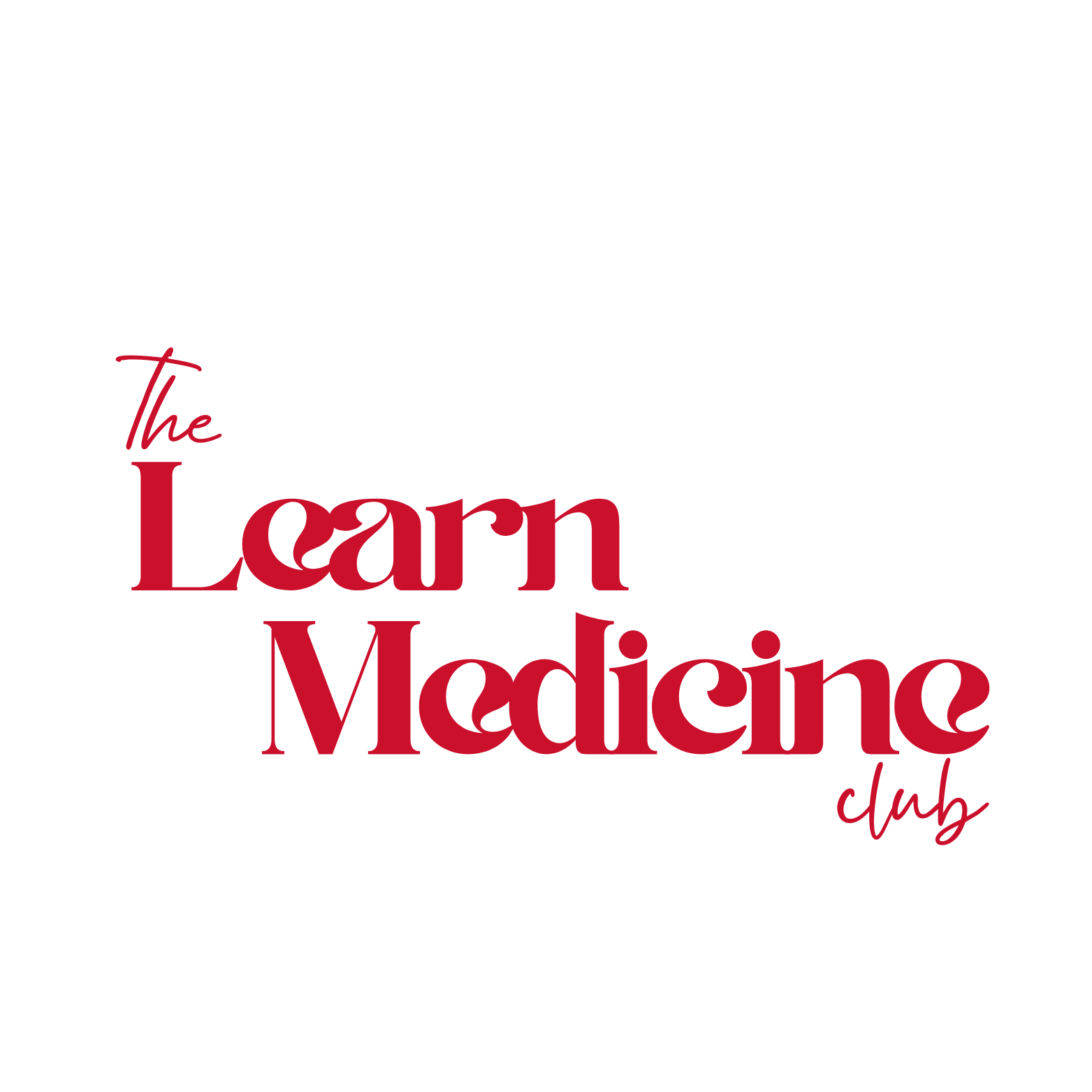Balancing life in med school can become hectic, and every student has reached the point where all of the assignments are piling up, grades are on shaky ground, and motivation is at an all-time low. To stay on top of school work as well as on your social life in university (especially in med school) can be a particularly difficult task when you don’t have the right tools to make studying more efficient and productive. Coming from a student who learnt this the hard way, I can promise you that doing it all is not as difficult as you might think. The key is to implement a powerful studying strategy that makes the most of the time you spend at your desk. It’s not about studying more or less than what you can; it’s about using the right study hacks and learning the right skills so that every second matters.
This post will cover just that. I’ll show you everything you need to know about making the most out of your study time.
This post may contain affiliate links. This means that if you click on my link and make a purchase, I may receive a small commission – at no extra cost to you. Full disclosure here.
5 study hacks you need to know to transform your studying in med school

1. Learn your personal studying style
This one may seem a little bit cliché, but it’s one of the most efficient changes you can make, so I had to start with it. Everyone has so many opinions on the best way to study for exams, the fastest way to take notes, quick tricks to memorise information… but the truth is, none of them are either completely right or wrong. After I spent some time getting good at studying and among people with similar ambitions, I realised that everyone who gets amazing results has mastered the art of studying specifically for their brain.
The reason this is so important is that the human brain learns differently for everyone. Learning is nothing more than your brain creating new neuronal pathways to link information together and be able to recall it. This process becomes significantly faster if you take enough time understanding what helps your brain and what helps other people. This way, you don’t waste time with methods that simply are not useful to you and your unique style of learning.
Alternative studying methods you should try are:
- active recall (where you try to recall information learnt by writing it down on a piece of paper, or recording yourself)
- testing yourself with basic questions to see how well you understood a subject
- teaching the subject to a friend and making notes of everything you didn’t understand
- making flashcards and going through them daily, etc.
It is important to take notes on what method worked best in terms of how much you were able to easily recall, how long the studying session was and how easy you found using it. Ultimately, most students use a mix of multiple methods, depending on how the exam will be structured, the subject they are studying for, and whether they study to understand or to memorise the information.
2. Note-taking matters more than you think
Suppose you believe that taking notes in class is necessary only so you have the exam material written down in your notebook for future reference. In that case, you are already wasting an important learning time: right in class.
The biggest difference in my note-taking process was switching from paper to mostly iPad-based notes. This is because of multiple reasons:
- Getting the course discussed by the professor in class on your iPad allows you to annotate the different slides just as the professor is explaining them. This allows you to listen actively and take notes that add to the information you already have in front of you.
- After you get home from class, you can go through the notes and, using platforms such as GoodNotes6, you can summarise the information into notes that offer a clear image of the subject discussed. What I love about this platform is that it allows you to create multiple notebooks organised in folders, write with infinite colours, create flashcards and search through your handwritten notes, so that everything is clear and accessible. Find more about GoodNotes and taking the right notes here.

- You can get textbooks in PDF format and have them stored in a Google Drive, so that you don’t have to carry all the heavy books in your bag – and also save money!
- You can use platforms like Complete Anatomy, which are of extreme help, especially when accessed through the tablet, as you can visualise complex anatomy elements and understand their structure through beautiful and accurate models placed right at your fingertips. I personally love how you can navigate layer by layer through organs like the brain, which becomes so easy to understand once you actually get how they are built.
I personally have used my iPad Pro for a couple of years now, and I still notice the impact it has on my studying and the time I spend understanding information.
3. Understanding spaced-out repetition is a game-changer
Maybe you’ve heard about this concept before, but if not, this is about to change the way you study. I’ve touched on this briefly in the beginning, but learning is the brain creating neuronal synapses by trying to move information from the short-term memory area to the long-term memory one. It doesn’t do so overnight, and the most efficient way to make this process faster is to repeat what you are trying to learn, increasingly spaced out as time goes by.
After learning a new concept, ideally, you have to repeat it the day after, so that your brain remembers it, and takes a stronger note of the concept. But after that, you only have to go through it every 2 days. Then, after a week, and after 2 weeks, you will already be surprised how familiar you are with the topic and how easily you can add information on top of it. This is spaced-out repetition.
I would use it to memorise long pieces of text and complicated classifications or nomenclature. Different study materials require different methods, but I would say spaced-out repetition could benefit almost anyone if done correctly.
4. Know what the exam tests in you
This is perhaps the most important one. Of course, ideally, we would have time to deeply understand every little concept in every subject taught in med school. But realistically, that is just not possible with this amount of coursework and quite frankly, not necessary. People have this misconception that in order to get good grades, they need to thoroughly memorise every word written in their medical textbooks, but that is simply not the case. As with any other exam, med school exams only want to see that you possess specific skills and pieces of knowledge. Each is different, but to hack the learning process is to know what exactly you have to learn for each specific exam.
For example, here are some exam styles and what they usually test in students:
- The multiple-choice exam: a classic! It’s perhaps one of the most common exam styles in med school, and the following may also apply to this one. But it’s worth mentioning that multiple-choice exams want to see you correctly understand the core subject, as well as making connections between concepts, understanding the question and paying attention to traps – to succeed, you need a good foundation in the specific subject, as well as focus and time management skills.
- The key elements questions: these may not require you to memorise all of the details of the course; they may be broader, and the marking scheme may not be as strict. However, you will still have to identify the core concepts and gain the ability to clearly explain the main idea without losing yourself in too many details.
- Time-pressured exams: they test speed, accuracy, how you prioritise different questions, as well as seeing your weak and strong points. It is not about finishing everything, it’s about prioritising the questions you KNOW you will get right so that you get the most amount of points. One of the most famous exams in this style is the UCAT exam, and you can read more about it here.
- Essay-style questions: These require you to know details and understand the subject thoroughly. But knowing that can make you pay attention to every detail worth remembering. It’s all about knowing exactly how much is required for you to achieve great grades.
You always have to ask yourself: What does a top-achieving student look like for this exam? What skills do I need to possess? It helps a lot if you work through multiple past papers, so you can spot patterns and create an exam profile in your head. Once you know what you’re dealing with, you’ll be able to filter out unnecessary noise and perform better.
5. Stay on top of your sleep schedule
Last but not least, you will have to get those full nights of sleep to make sure the information sticks in your brain and is stored appropriately. Although it’s tempting to stay up late to finish that one chapter, going to bed instead will make sure that what you’ve already done is effective and not just passing through your brain. Get as many hours of sleep per night as you can and you’ll notice your performance, discipline, resilience and overall brain capacity improving. This is also the safest way to avoid burnout and mental blockages that stop you from learning at al.


